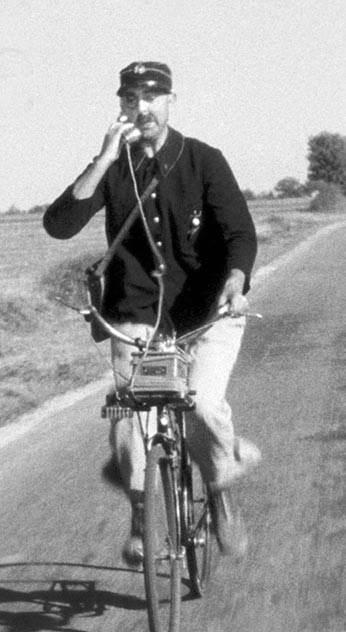|
| What is Americanization? |
|
In everyday life |
What do the French call "
Americanization " ? There
is no doubt that America is associated with progress, efficiency,
culture, etc... But like the other people in Europe, the French
often fear that the influence of America might threaten their
economy, their way of life and their culture. This feeling is
largely shared among the left wing, but not only. By Americanization,
they often mean :
-
American mass culture (films, music) dominating the world
and weakening or destroying national cultures : see " exception culturelle " . It is not just Europe : in Africa, American distributors offer free US TV series
in exchange for TV commercials for US products.
-
American institutions and
legal practices : for
example, when signing a contract with a powerful American supplier,
the contract will be in English, drafted by a US law-firm, the
last provision will be that, in case of conflict, the case will
be taken to a New York court, ... More about extraterritoriality.
-
Having to speak English, as a common language ; this is one
of the most important issues of the building of Europe and, contrary to what many American think, it is NOT just "convenient"
and "neutral" : when you speak another language, you
BECOME another person. Their language is the most important common
value for the French, and they
love it.
-
There is no doubt that the fear of "Americanisation" is very linked to the fear of globalization
- See examples of americanization in political life, etc (to be continued)
|
|
What are the recent changes in everyday life which can be considered as "Americanization" ?
- A less formal appearance : no more ties, no dressing up for an opera show or for a funeral, unshaved is sexy, etc.
- A dramatic change in eating habits : snacking is usual and accepted, you find hamburger in French restaurants, etc.; this is why French schools make big efforts to maintain French eating habits among kids (read more about it)
- The end of the traditions that linked to the rural roots and new strictly urban behaviors like no longer sharing emotions and family events with neighbors, etc.
- Consuming foreign products and changing eating habits, leisure,
etc ; the fact that the proportion of obese in the French population
is increasing is considered closely linked with the " Americanization
" of eating habits (like snacking or drinking oft drinks), for instance : see the
secrets of the French
diet).
-
- Are also considered "americanization" : political correctness, gender studies,
feminization of words and inclusive writing, communautarism, etc...
- More to come
|
| Political correctness : a personal view |
The Political correctness movement in all its forms in the US ("cultural appropriation", "white privileges", "group identities", "racialism", etc) is developing in France, particularly in universities. It is clearly a sign of americanization. In the US (see Lacorne), the "political correctness movement" is an episode in the search of American identity. Today, this identity is associated with a society of separate groups (blacks, LBGT, women, etc) fully respected and protected as such : separated. Nothing can be said that could hurt the feelings of any of them. In France, the vision is (still?) different : any member of the French community, black or white, LBGT or not, has the same rights and obligations and no distinction from the others can be accepted since we are all equal. This is why forbidding the Islamic veil in public space is so widely supported in France (and so widely misunderstood in the US). This is a difference, and not a minor one, and key to understanding the cultural differences between French and Americans (remember : for the French, "Equality" is more important than "Liberty" and communautarism is not acceptable in a republic). Most French a literally horrified (me and a few million others) when they see what American universities have become : no more freedom of speech (you don't want to hurt somebody's feelings if you disagree...), "safe spaces" where you are sure you will not meet anybody different from you (not very good to open people's mind...) and a constant fear of doing or saying something that would be considered inappropriate by very young kids using very old sophisms. Another example of what does not exist (yet?) in France : the "sensibility editors", to censor the manuscripts of what could hurt the feelings of the members of any sexual, social or ethnic community. Inclusive writing, which is developing in France, is another example of americanization (see a ridiculous illustration of it in the US!).
In a nutshell, it is 1984's Orwell every day. |
|
Illustrations of the recent development of political correctness in France :
- In March 2019, activists obtained the cancellation of a play of Aeschylus to be performed at the Sorbonne ("Suppliants"). Reason : in the play, half of the characters had black masks
- The CRAN (a national association of Black people) organizes frequently meetings where white people are not admitted (this is absolutely against French laws)
|
 (Credit) (Credit) |
|
| Bibliography |
|
A bit of history: the most significant "waves of Americanization" |
Books against the" Americanization of France" :
- ARON Robert & DANDIEU Arnaud, Le cancer americain (1931), L’Age d’Homme, Lausanne, 2008, 142 p.
- BAUDRILLARD Jean, Amerique, Grasset, Paris, 1986, 124 p.
- DUHAMEL Georges, Scenes de la vie future, Artheme Fayard, Paris, 1934, 128 p.
- ETIEMBLE, Parlez-vous franglais ?, Gallimard, Paris, 1964, 376 p.
Studies on the phenomenon after WW2 :
- BARJOT Dominique, REVEILLARD Christophe (dir.), L’americanisation de l’Europe occidentale au 20eme siècle : mythe et réalite, Presse de l’Universite Paris Sorbonne, Paris, 2002, 274 p.
- BARJOT Dominique, Catching up with America. Productivity Missions and the Diffusion of American Economic and Technological Influence after the Second World War, Presse de l’Université de Paris Sorbonne, Paris, 2002, 477 p.
- D'IRIBARNE Philippe, Cultures et mondialisation, Le Seuil, Paris, 2002, 362 p.
- DJELIC Marie Laure, Exporting the American Model. The Post-war Transformation of European Business, Oxford University Press, Oxford, 1998, 328 p.
- KUISEL Richard F., Seducing the French. Dilemma of
Americanization, University of California Press, Berkeley, 1993, 296 p.
|
|
Like all other countries, France has been through a few major waves of US-originated influence
-
Industry : at the end of the 19th C., Europeans discover the power and efficiency of the US industry (Edison and how to go from the idea to the product, then Ford and Fordism, etc.)
-
Business and the Americanization of the management of firms. After the disaster of WW2, French companies realized the weaknesses of their management. With the initial help of the Marshall Plan (through the Productivity Missions to the US in 1950-1951) and with the actions of organizations like the Ford Foundation to improve the business school system in France, the "model" of French companies became the American model (at least for international companies).
-
Cinema and TV : in 1920-1930, the triumph of Hollywood shaped the whole industry worldwide, in spite of the reluctance of the other movies producers. Later, American TV programs are sold worldwide because that are technically good and cheap because amortized on a big domestic market.
-
The Internet civilization : major actors (Google, Amazon, Facebook, Tweet, etc) and new tools creating new social and economic relations (Uber, e-bay, AirBnB, etc).
|
| Americanization and the French culture |
|
Main vectors of Americanization |
|
WARNING! You may be surprised and you may disagree with the contents of this page. The reason could be that, like most Americans, you've been raised with the idea that people are lucky to be born in America, a country that is better than any other country in the world (that is what other countries call "American exceptionalism"). It is largely true but most American expats (read about them) may suggest that it would be profitable for America to look at other countries with a more open mind!
| A reference for movie-lovers : A classical illustration is the movie "The Big Day" by Jacques Tati (Jour de Fete, 1949) which shows a French mailman trying to reconcile the way he works, chatting with everybody in a charming old village, and what he has seen of his American colleagues, where everything goes very fast. After hilarious attempts to imitate them, he goes back to his old habits, concluding "all that stuff is not for us". |
 |
Mailman Francois trying (unsuccessfully) to call from his bike ( Credit) |
DID YOU KNOW THAT? Americanization can take very subtle forms. if I order something from some American suppliers, the address form may ask "What is your State?". I live in France and the country has no "State". On several occasions, I had to give up ordering because the (American) software did not expect that someone could live without a (US) "State". Read about the French and their language. |
|
Americanization spreads through several vectors :
-
Technology : Americanization is just the sign of the American technological and scientific leadership. The evolution of societies is shaped by technology and all technical innovations (the wheel, printing, steam engine, electricity, computers, internet etc.) change the mode of production and social relations. For the past two centuries, most technological innovations have appeared in the US and the other people attribute to the US the major changes they wen through.
-
Culture : American business and the US government encourage the transfer of US popular culture and US ways of life by all available means : cinema, medias, music, etc. which are the vectors of Americanization. It is meaningful that in major international trade agreements, the free flow of US movies can be a deal-breaker when a foreign government like France does not accept it (the current case is the projected Transatlantic USA-EU Treaty) or has to be forced to accept it (the Blum-Byrnes Agreement in 1946).
-
One-Way influence : For many Americans, the word "Americanization" does not mean what it means in the rest of the world : for them, behaving like Americans means resembling more and more a superior model. It is therefore good in itself! For most other countries, becoming like Americans means being less what they used to be : it is considered a loss.
-
An example : the
Google challenge (2004)
to scan the books of five libraries (Michigan, Stanford, New
York, Harvard and Oxford) provides an excellent example of potential
americanization : if a search engine and all the references are
in English, they will of course convey only US and British cultural
references and values. This is why Europeans (French, German
and others) are designing an additional (but not counter) project
in their own languages.
-
More to come ...
|
| To related pages : French culture, anti-americanism, France/US relations in history, etc |
|
To table
of contents
To top of the page
Back to home
page
|
Harriet Welty
Rochefort writes articles and books about France and the French.
Order her books :
- "Joie de Vivre", Secrets of Wining, Dining and Romancing like the French, St.Martin's Press, New York, 2012
- "French Toast, An American in Paris
Celebrates The Maddening Mysteries of the French", St.Martin's Press,
New York, 1999
- "French Fried, The Culinary Capers
of An American in Paris", St.Martin's Press, New York, 2001
More on Harriet's books (excerpts, upcoming
events, testimonials, etc..)
|
| To
email
us |
If you like this site, please bookmark it or create
a link! |
|